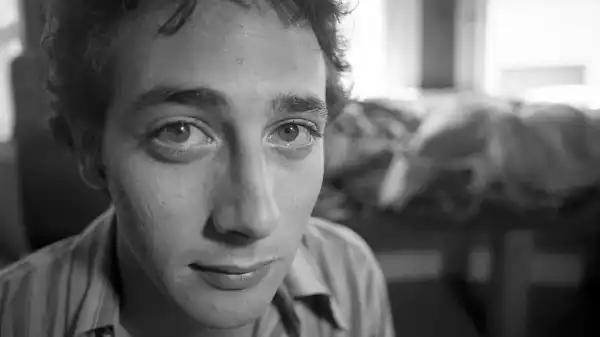
Save this storySave this storySave this storySave this story
One of the defining moments in Paul Reubens’s life happened long before Pee-wee Herman, long before Playhouse, long before the arrests. It happened in the mid-1970s, when Reubens was in his early twenties, a bohemian art freak fresh out of CalArts, with long, unkempt hair and a scraggly beard. He could have fit right in with John Waters’s eccentric crowd—in fact, he looked like the guy who had sex with a live chicken in Pink Flamingos. He was a wild character in art school, appearing in a student film as a Cher-inspired mermaid and making out with his classmates in a kissing booth on Valentine’s Day. He planned to join the Angels of Light, an offshoot of the radical queer troupe the Cockettes, and began traveling the country from his family home in Sarasota, Florida, to San Francisco. “I was on my way to becoming an underground performer,” Reubens recalls in “Pee-wee as Himself,” a revealing two-part HBO documentary that hit theaters Friday.
He never made it to San Francisco. In Los Angeles, he attended a party and met a hot young black guy named Guy, and was instantly smitten. They became a couple and soon moved in together in Echo Park. Guy had a habit of tasting things and saying, “Mmm, chocolatey!” or “Mmm, buttery!” — a bit of what Reubens would later adopt as Pee-wee-isms. Reubens became so immersed in the relationship that he lost touch with his personal identity and grandiose ambitions. “I just made a conscious decision and said, ‘I’m not going to live like this anymore,’” he told Matt Wolf, the documentary’s maker. “Not only was I not going to be openly gay, I was not going to be in a relationship. I wanted to focus on my career because that was something I could control.” He returned to the closet and remained there, more or less, until his death in 2023.
What if Reubens had never fallen in love? What if he had made it to San Francisco? His obituary might resemble that of Rumi Missabu, the avant-garde drag exhibitionist of the Cockettes, known for campy, experimental films like Elevator Girls in Bondage. He might have found his counterculture tribe in the Castro and fallen victim to the AIDS epidemic (as Guy did after their breakup). Instead, he channeled his anarchic instincts into a format that Hollywood would appreciate. He joined the Groundlings, a comedy group in Los Angeles, where one of his characters was Pee-wee Herman, a clean-shaven man-child with a red bow tie, a too-tight suit, and the explosive energy of a hyperactive boy. After an unsuccessful audition for Saturday Night Live (when he saw Gilbert Gottfried, he knew there was no room for both of them), he launched The Pee-wee Herman Show as a late-night show at the Groundlings. The character became a sensation, moving to the Roxy, then HBO, then the big screen (Tim Burton’s Pee-wee’s Big Adventure), and Saturday morning TV, where his act—originally a cheeky parody of ’50s kids’ shows like Howdy Doody—became an actual kids’ show, albeit a joyfully weird and subversive one. As Reubens tells Wolf, “I was a performance artist in mainstream pop culture.”
Pee-wee was a performance, in large part because Reubens had made another important decision: to remove Paul Reubens from public life and present Pee-wee as a real person. “I decided I was not going to run Paul Reubens’s career anymore,” he told Wolf. “I was going to run Pee-wee Herman’s career.” Early on, he saw an ad for “The Dating Game” and signed up as Pee-wee. (As Bachelor No. 3, he actually won.) Pee-wee began appearing on Lee Leonard’s CNN talk show and eventually became a regular on “Late Night with David Letterman,” where the host’s deadpan manner was the perfect foil to Pee-wee’s madness.
But dividing himself into two parts came at a price. One day, when the Roxy show was taking off, Reubens was standing across the street, staring at Pee-wee’s name on the billboard, enjoying the fulfillment of his dreams of stardom, when he had an anxiety attack. “I realized you can only hide so much behind an alter ego,” he told Wolf. By the time Pee-wee’s Big Adventure premiered in 1985, making Reubens both famous and anonymous, he had begun to feel jealous of the character he’d created. Few knew that
Sourse: newyorker.com